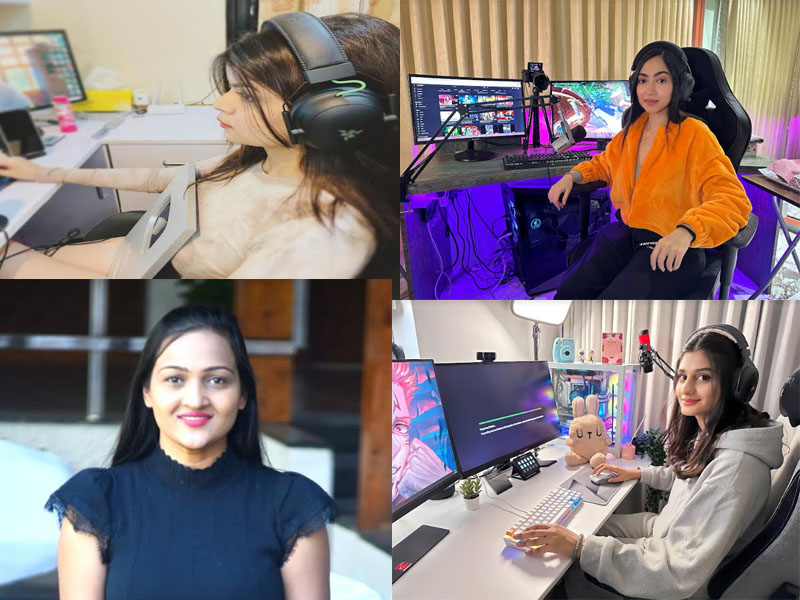For a long time, gaming has been considered a male-dominated field. Women who are passionate about gaming have often faced gender-based discrimination and stereotypes that hindered their progress in the gaming ecosystem. However, in recent years, women have been breaking down barriers and changing the narrative around female gamers. They have been actively pursuing their passion for gaming and making their mark in the industry, pushing back against the stereotypes and biases they have faced.
According to the “Gaming India Report 2022 – For The Game” by Dentsu, 46% of the gamers in India are females. Payal Dhare a.k.a “Payal Gaming”, a well-renowned creator of 8Bit Creatives believes that women bring unique perspectives, ideas, and creativity to the industry which helps to drive innovation and progress. Women’s contribution to the gaming industry has been proven to be instrumental in bringing in a new audience and increasing revenue., she says.
Concurring with Payal’s point of view, Krutika Ojha a.k.a “Krutika Plays”, another creator of 8Bit Creatives says, “Embracing diversity and inclusion in the gaming industry is a goal that we are constantly striving towards. The gaming industry can tap into a wider pool of talent, ideas, and perspectives, and create games that appeal to a more diverse audience. This not only helps to drive the growth of the industry, but it also helps to break down barriers and stereotypes associated with gaming. The push for greater diversity and inclusion in the gaming industry is not only important for women, but for the industry as a whole.”
Making great strides in the industry as video game designers, programmers, animators, video game testers, game writers, and audio engineers, women are chasing their dreams by taking up a career in this exciting industry. There are also a few notable gaming creators like Kaashvi Hiranandani a.k.a “Kaash Plays” who have left their financially secure jobs to pursue a career in gaming. Working as a finance consultant, she started streaming video games on Youtube at the age of 25 but later left her job to become a full-time streamer.
“It was a tough choice for sure, especially being a woman getting into a male-dominated industry, but I followed my passion and have never regretted it. When I started, there were hardly any women players but glad that things have changed in a really short span of time. It’s encouraging to see that perceptions are changing and that women are becoming more confident in taking risks and pursuing their passions,” she says.
Kaashvi further adds that there is a lot of scope for youngsters to get into the business of Esports like as a video game writer who pens down the stories and dialogues, a video game producer who manages the development of video games from concept to completion while virtual reality is another space anyone can explore and benefit out of.
The prominence of women in gaming is not just limited to Esports athletes or streamers as they are also making their presence felt in the sector by establishing their own startups. Richa Singh, the co-founder, and CEO of FanClash, Asia’s largest fantasy Esports platform has debunked the widespread stereotypical notions and proved that women can lead in the business of gaming and become among the key industry players.
“In recent years, there has been a huge shift in the gaming industry, with a remarkable stride towards gender equality as women showed their ability to compete with male gamers on an equal footing. Women are an active part of the gaming community, working to bridge the gap between themselves and their male counterparts. The priority should be crafting safe spaces for leadership identity where women should be able to focus on the job, not overthink regarding invisible barriers, and to create jobs for those women who are passionate about gaming and want to make a career out of it, from game designers and developers to content creators and influencers,” says Richa.
Not only are women breaking stereotypes in the gaming ecosystem but they are proving that they belong in the industry and changing the narrative. It is vital to continue pushing for inclusivity and diversity in gaming to ensure that everyone feels welcome and represented in this rapidly growing industry.


